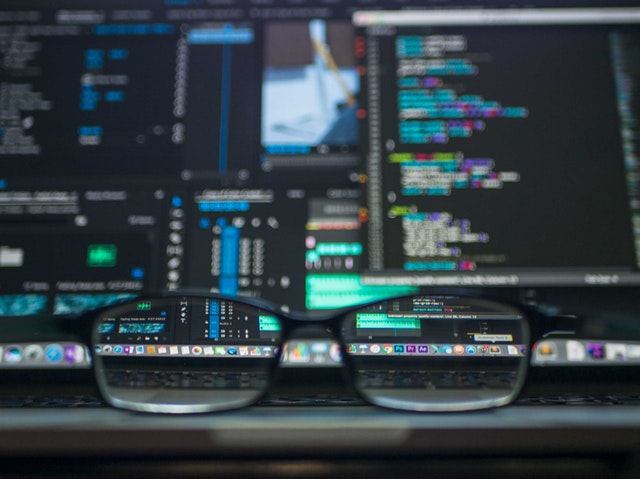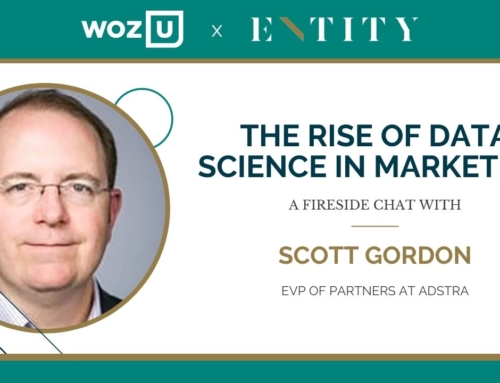“In 2012, Harvard Business Review referred to Data Science as, ‘the Sexiest Job of the 21st Century.’ What exactly caused this radical change in public opinion?
Today, trends are showing that data science is the career of the future. The history of modern Data Science begins with the invention of digital information itself. Along with the entry of personal computers into homes in the 1970s, humanity stepped into the “Information Age,” a brave new world in which data was more abundant and important than ever before.
Data Science and the Information Age
In contrast with the Industrial Age, this era represented a huge shift in daily life due to the use of digital technology. And in the early 90s, with the widespread adoption of the Internet, our consumption of information accelerated once again.
As native inhabitants of this new age, we ‘ve been provided with an unprecedented amount of data and access to knowledge possessed by no generation before us. Additionally, the rate at which we create data isn ‘t slowing down either. Over the course of 2017, approximately 2.5 quintillion bytes of data were created each day. And due to the adoption of 5G technology and the Internet of Things, it is estimated that each person on earth will produce an average of 1.7MB of data per second by 2020. As the creation of data increases, so will the importance of analyzing these growing mountains of data and drawing key conclusions from it. Likewise, the difficulty of analyzing larger and faster streams of data will increase over time.
Why Is Data Science Important?
Francis Bacon, the inventor of the scientific method, famously said, “knowledge is power.” Today ‘s tech giants would agree with this statement, as they gather and leverage immense amounts of data to stay ahead of the competition. Companies like Google, Apple, Facebook, and Amazon are especially interested in using data to improve their products and provide better experiences to their users.
In the next decades, we ‘ll likely see the average human producing gigabytes and terabytes of information per second. At that point, data flow will become far too large and too fast for humans to interpret piece by piece. Instead, researchers are developing Artificial Intelligence and machine learning for this very purpose—to gather and sort out the very most important information. With the use of this advanced technology, we ‘ll be able to separate the proverbial wheat from the chaff and identify the most important grains of information.
Some worry that such technologies will eventually replace data scientists and that AI will eliminate jobs in the field. On the contrary, AI will serve as a tool that equips data scientists to make more informed decisions and spend more time on solving problems than sifting through piles of data. While Artificial Intelligence will be able to handle many of the mundane tasks that have previously been entrusted to Data Scientists, human intelligence will still be needed to draw conclusions and create strategies from key data.
AI by itself is merely able to identify relevant data sets and patterns, but a human must determine what the data actually means.
What Is Data Science?
The field of statistics has historically been considered by the general public as a “dull” or “dry” topic. However, in 2012, Harvard Business Review referred to Data Science as, “the Sexiest Job of the 21st Century.” What exactly caused this radical change in public opinion?
In contrast with pure statistics, data science seeks to not only explain data but also create actionable and repeatable patterns. Simply put, data science doesn ‘t just explain the problem but creates a game plan for solving it. A data scientist uses statistical techniques to understand big sets of data and approaches the problem like an engineer. As a result, top companies in Silicon Valley are willing to shell out big bucks to anyone with the ability to help them comb through data and help them improve their products.
Data Science is a rather broad field as it encompasses multiple disciplines like mathematics, computer science, statistics, and data mining. Because Data Science depends so heavily on statistics, in particular, many experts have asked if the two fields are essentially synonymous. Critics of the data science movement have also claimed that “data science” is merely a rebranding of statistics. But, data science possesses many traits that distinguish it from other fields.
How Do I Start My Career in Data Science?
If you’re considering a career in Data Science, you couldn’t make a better choice. For the third year in a row, Data Science has been ranked as the best job in America according to Glassdoor. In addition, Data Science is one of the best-paid fields in the U.S. with a starting salary of approximately $100,000.
Believe it or not, many data scientists come from a wide variety of backgrounds—not just statistics and computer science. Since data science depends primarily on problem-solving, your ability to draw conclusions and think outside the box will benefit you more than your major alone. Primarily, STEM or STEAM majors have the greatest advantage when searching for a job in Data Science.
For those ready to start their education in Data Science, Woz U delivers cutting-edge Data Science curriculum built by experts in their field. By attending a “Powered by Woz” university, aspiring data scientists give themselves an advantage over the competition and graduate from college prepared for their first job. Interested? Check out our official Data Science program page to learn more.
Conclusion
The rate at which humanity creates data is expected to grow exponentially over the next few decades, making the ability to interpret it and draw key insights even more important than ever. Data scientists aren ‘t just statisticians but problem-solvers who use a wide variety of skills and techniques to improve the businesses they work for. Data Science is an in-demand career, with Silicon Valley companies paying highly competitive salaries for anyone with the relevant skillset.




